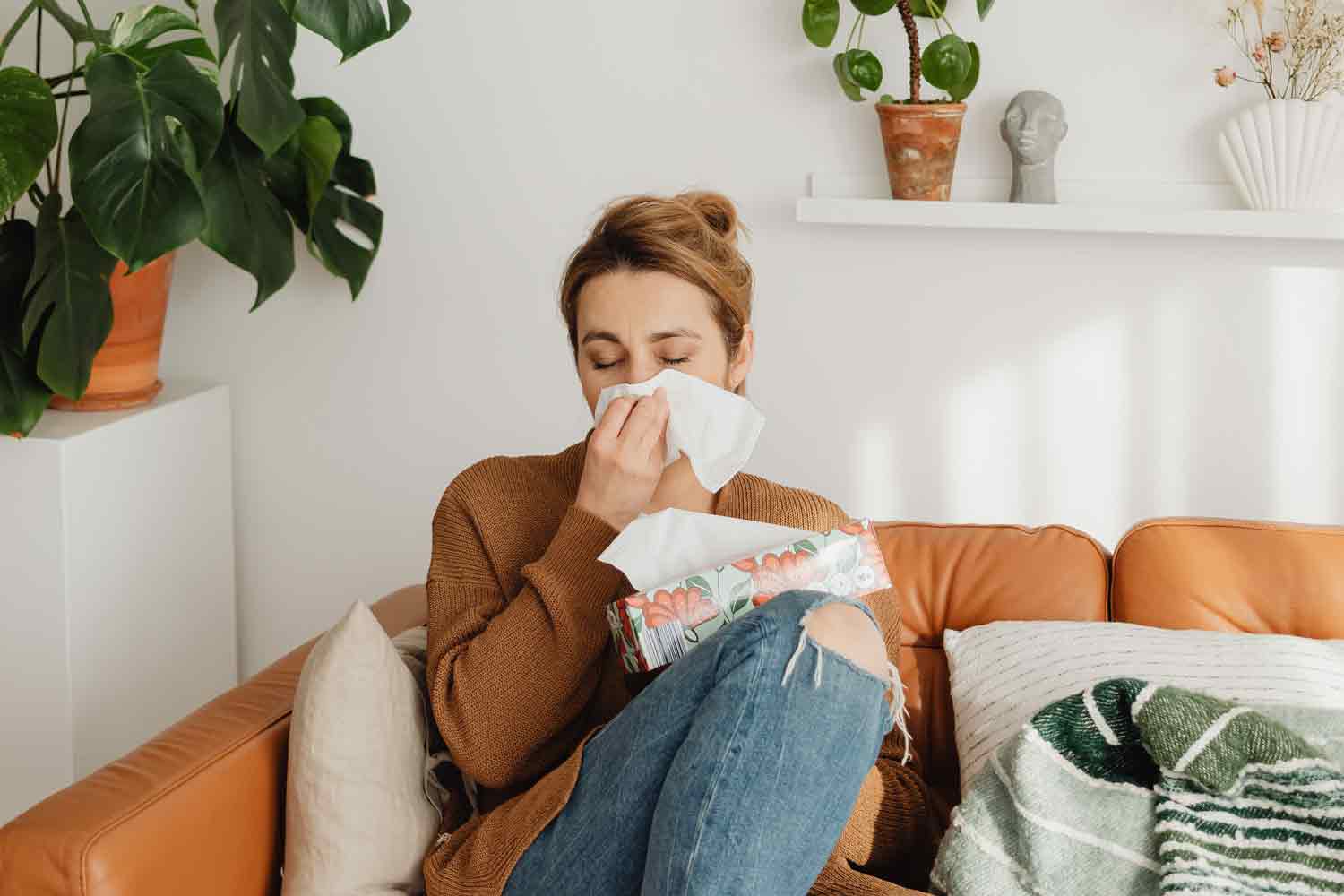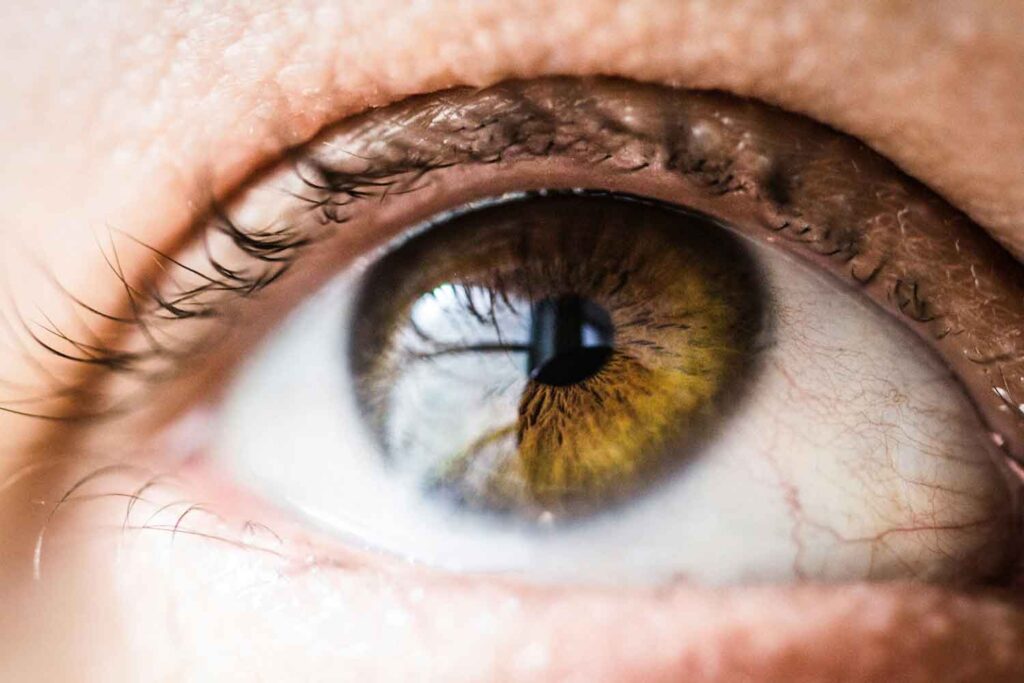Linalool Allergy: What You Need to Know

As great as terpenes can be, unfortunately, not everyone can reap the benefits. That’s because some people develop allergies to certain terpenes. Let’s talk about linalool allergies and what you can do about it.
Photo: Pexels
What is Linalool?
If you’re unfamiliar, linalool is a terpene found in plants like weed, lavender, eucalyptus, and sweet basil. Linalool is known for its sweet, floral, and woody tones.
Besides plants, you can find linalool in tons of personal care and household products. As a matter of fact, Alchimia says that over 30% of products contain linalool.
But what’s unique about linalool anyway?
Linalool is often used for relaxation, anti-anxiety, and anti-stress relief. That’s why lavender and its products are often advertised as stress relief.
Alchimia says, “this compound has a potent anti-inflammatory, calming and even sedative effect in mammals, which gives it a therapeutic potential that has not gone unnoticed by the scientific community.”
As a matter of fact, a 2015 study also mentioned that linalool can have anti-depression effects.
How to Know If You Have a Linalool Allergy
If you’ve used a product with linalool in it and noticed a rash, you may have a linalool allergy.
DermNet says, “Ten percent of individuals investigated for a suspected contact dermatitis were found to be allergic to these hydroperoxides. Allergy was more common in women and those aged over 40 years.”
DermNet also says, while linalool may be a contact sensitizer by itself, people are typically allergic to it when it’s exposed to oxygen. When linalool is exposed to oxygen, Linalool is oxidized into hydroperoxide, a much more potent sensitizer. This hydroperoxide can cause allergic contact dermatitis.
Contact dermatitis presents as a rash on your body. DermNet says to look out for red, swollen, vesicles or blisters on your face, trunk, hands, or axillae. In case you’re wondering, your axillae are your armpits.
Interestingly, you may be able to use freshly opened products without any allergic reaction because of delayed oxidization. However, DermNet says, “Due to this delayed oxidization, a freshly opened product that is used daily at home may not cause problems, but an identical older opened product eg, those kept with holiday toiletries, may elicit a reaction.”
It’s entirely possible that you’re allergic to another compound in your personal care or household. To be one hundred percent sure that you’re allergic to linalool, you can do a patch test with your doctor.
Can I Smoke Weed with a Linalool Allergy?
If you notice that you’re allergic to products with linalool, you may be wondering if you should toss your linalool heavy strain.
Well, linalool allergies are usually skin related. We don’t have a ton of information on how the allergy could manifest if you smoked a concentrated strain. However, we do know that airborne exposure to this terpene could cause contact dermatitis or respiratory symptoms.
Compassionate Certification Centers says, “Research shows that terpenes released into the air as biologic volatile organic compounds (BVOCs) are contributors to seasonal asthma and allergic rhinitis. An increased amount of Pinene and Linalool in the air can predicate respiratory symptoms and increased nasal congestion.”
While this doesn’t directly answer the question, it may make sense to avoid linalool-heavy strains if you’re allergic to it.
How to Get Rid of an Allergy to Linalool
If you notice that you’re allergic to linalool, you may be wondering what you can do about it.
Well, according to Medical News Today, “There is currently no cure for allergies.”
It’s best to just avoid products that use linalool. If you don’t want to spend a ton of time reading ingredients, you can opt for fragrance-free options.
If you’ve used this terpene and you’re having an allergic reaction, then it’s best to treat your symptoms. For example, with the rash, DermNet says, “The eczema is treated by the application of a topical steroid until the allergic reaction settles.”
Foods to Avoid With Linalool Allergy
Yes, linalool is found in food and so if you’re allergic, here are some food you may want to avoid:
- Spearmints
- Corianders
- Common thymes
- Limes
- Grapes
- Lemons
- Grapefruit
- Oranges
- Pineapples
- Blackcurrants
- Basil
- Common oregano
If you’re allergic to this terpene in beauty and household products, you could be affected if you consume food that has it.
There was a case of a 12-year-old girl who seemed to have a bad reaction to linalool. She also had issues with certain foods. The case study says, “She also developed a tingling and burning sensation of the mouth minutes after eating mango, pineapple, lemon, lime, peppermint, rosemary, cinnamon, parsley, chilli powder, turmeric and paprika. These evolved into erythematous ulcerated areas of the lips and tongue in the next 24–72 h.”
Takeaway
Linalool is found in tons of products and food. Unfortunately, many people have developed an allergy to it. If you’re allergic, it’s best to avoid it. We don’t know what will happen to you if you use a linalool heavy weed strain while allergic to that terpene. However, to be on the safe side, you can opt for other strains with similar effects. If you end up with adverse effects, you can treat the symptoms or seek medical attention if it’s serious.












